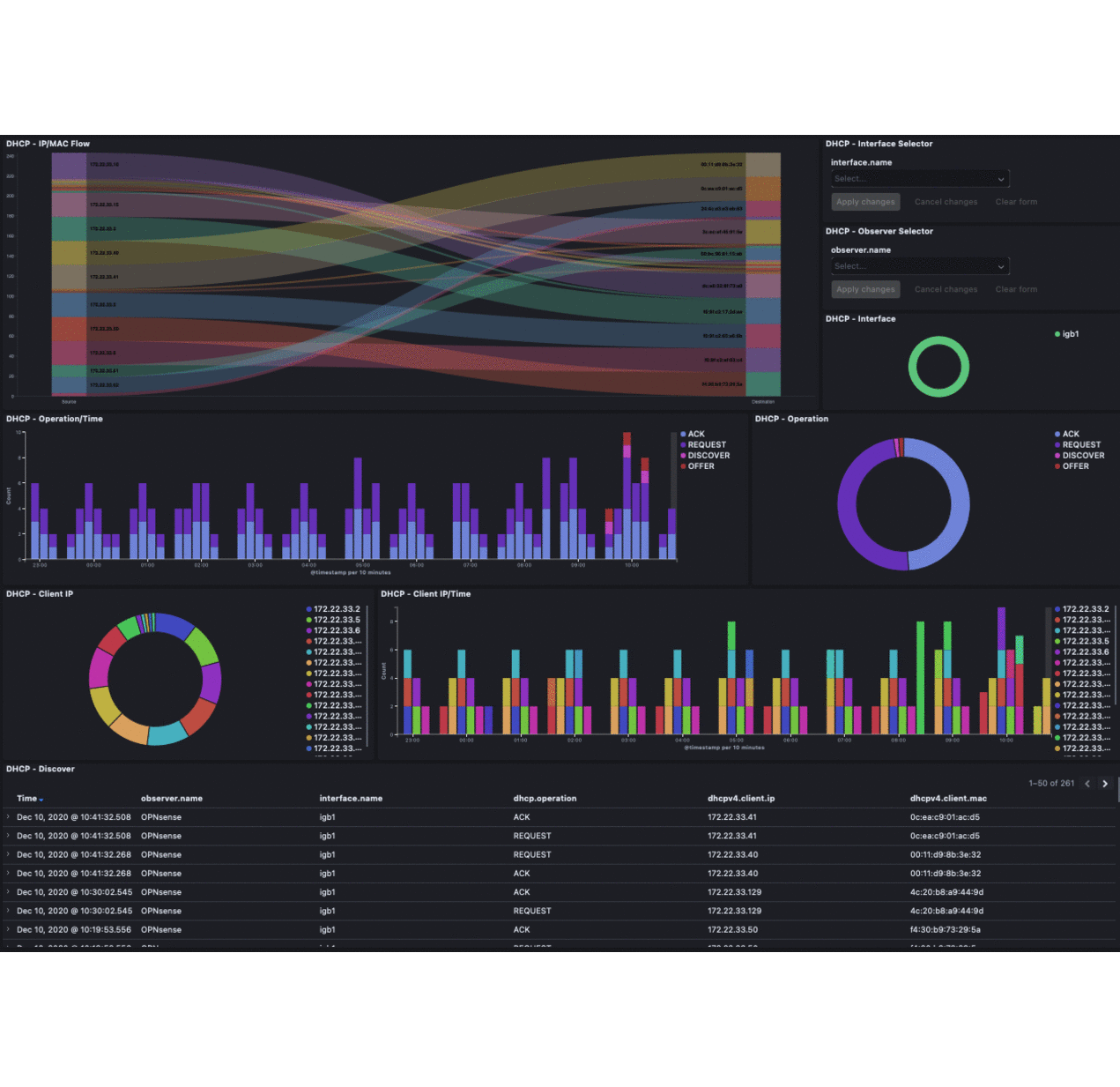- Ubuntu Server v18.04+ or Debian Server 9+ (stretch and buster are tested)
- pfSense v2.4.4+ or OPNsense 19.7.4+
- The following was tested with Java v11 LTS and Elastic Stack v7.10.2
- Minimum of 4GB of RAM but recommend 32GB
pfelk is a highly customizable open-source tool for ingesting and visualizing your firewall traffic with the full power of Elasticsearch, Logstash and Kibana.
-
ingest and enrich your pfSense/OPNsense firewall traffic logs by leveraging Logstash
-
search your indexed data in near-real-time with the full power of the Elasticsearch
-
visualize you network traffic with interactive dashboards, Maps, graphs in Kibana
Supported entries include:
- pfSense/OPNSense setups
- TCP/UDP/ICMP protocols
- DHCP message types with dashboard (dhcpdv4)
- IPv4/IPv6 mapping
- pfSense CARP data
- openVPN log parsing
- Unbound DNS Resolver with dashboard and Kibana SIEM compliance
- Suricata IDS with dashboard and Kibana SIEM compliance
- Snort IDS with dashboard and Kibana SIEM compliance
- Squid with dashboard and Kibana SIEM compliance
- HAProxy with dashboard
- Captive Portal with dashboard
pfelk aims to replace the vanilla pfSense/OPNsense web UI with extended search and visualization features. You can deploy this solution via ansible-playbook, docker-compose, bash script, or manually.
- Clone the ansible-pfelk repository
$ ansible-playbook -i hosts --ask-become deploy-stack.yml
- Clone the docker-pfelk repository
- Setup MaxMind
$ docker-compose upGuide
- Download installer script from pfelk repository
$ wget https://raw.githubusercontent.com/pfelk/pfelk/master/pfelk-installer.sh- Make script executable
$ chmod +x pfelk-installer.sh- Run installer script
$ ./pfelk-installer.sh- Finish Configuring here
Guide
This is the experimental public roadmap for the pfelk project.
Please reference to the CONTRIBUTING file. Collectively we can enhance and improve this product. Issues, feature requests, PRs, and documentation contributions are encouraged and welcomed!
This project is licensed under the terms of the Apache 2.0 open source license. Please refer to LICENSE for the full terms.







